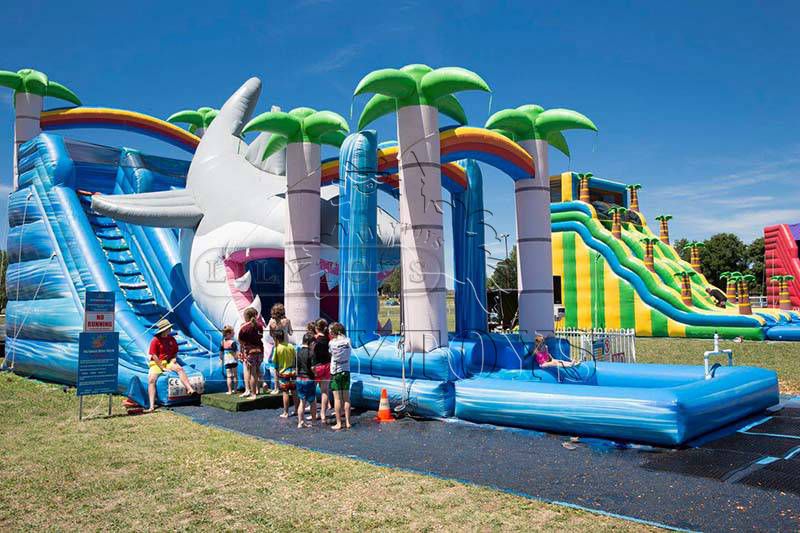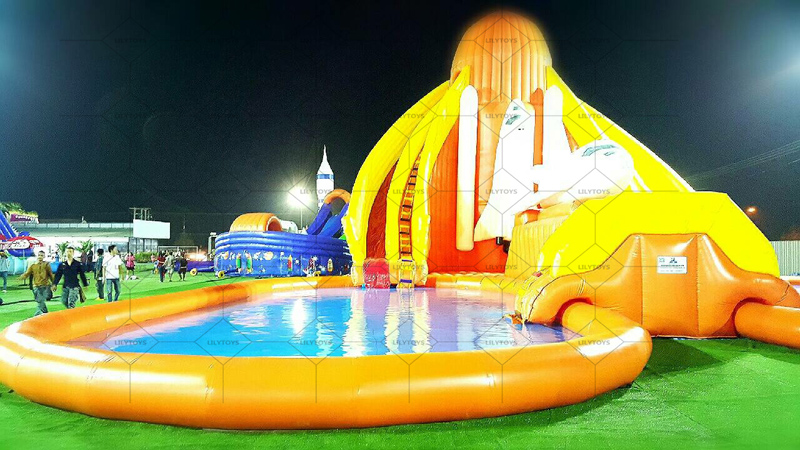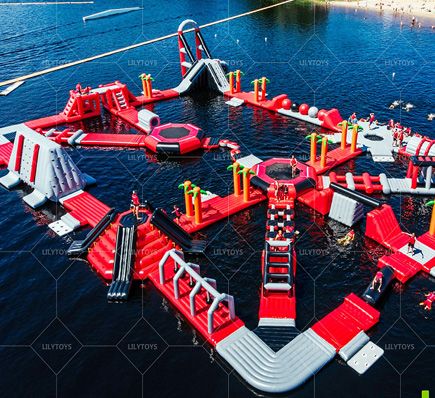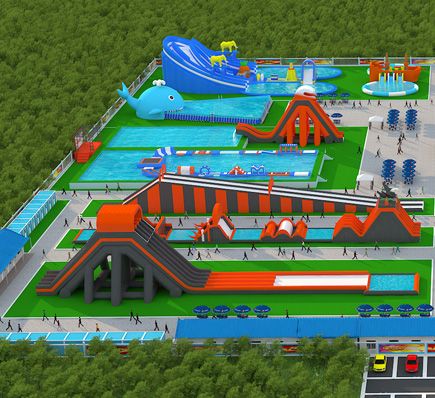The reality about water parks
Exciting water slides, splash pads, swimming pools, water playgrounds, surfing facilities such as wave pools, artificial surfing, delicious on-site food, and strict cleanliness and sanitation standards are some of the main expectations people have for the "ideal" watersports park. As the number of visitors continues to increase each year, our expectations for water parks often differ from reality.
Crowded pools, unclean water, long lines at the slides, less than clean showers, limited food options, park restrictions on clothing and diets, and most importantly, high entrance fees or anything in between, are often our expectation busters.
Therefore, we think it's important to know the place beforehand before planning your next visit to a water park so that your expectations and those of your children are not hurt.

1. How clean is the water? - Expectations vs. Reality
Expectation: Chemical treatment keeps the water sterile and clean.
Reality: Excessive exposure to chlorine can lead to skin irritation, skin burns and even chlorine poisoning.
One of the primary motivators for health-conscious water park visitors is chemically treated water in pools and mats. Although chlorine must be used to disinfect the water at water parks, over-exposure can lead to chlorine poisoning. People have found that accidental inhalation or consumption of these fumes and chemicals can result in hospitalization due to severe itching of the skin, eye irritation, lung irritation and bruising. Due to the acidity, excess chlorine can also cause corrosion of metal pipes and concrete surfaces of pools; another factor contributing to water park injuries.
So, the next time you feel skin irritation or burning eyes at a water park, know that it may be because of chlorine-treated water. It's a pool burn, not a sunburn.
What's the solution?
Prepare your skin with a skin protector or barrier cream containing almond, avocado or coconut oil. These light barriers prevent the skin from absorbing chlorinated water.
2. Waterpark Safety - Expectations and Realities
Expectation: 100% safe water slides and 24/7 rescue guards and emergency teams.
Reality: Accidents can still happen; availability of rescue and emergency assistance may not be timely.
As a child, the inflatable water park will remain a charming and entertaining place despite its shortcomings. As an adult, however, it may not be so exciting. There are all sorts of dangers and scary secrets that may be lurking at a water park near you.
For example, you may encounter a chlorine-resistant bacteria, or water slide injuries including concussions, bruises, spinal injuries and broken limbs. While there are no official records of overall water park injuries, according to one news source, on average, more than 4,200 people are taken to emergencies each year due to water park injuries. This figure does not include incidents involving lifeguard rescues.
So the next time you see a water park sign that says, "We are 100% safe," don't expect it to be so. Because the reality is different. In many cases, even emergency assistance can't be provided in a timely manner because the government can't actually cover the entire population with a few rescue team members.
What is the solution?
The only way to avoid such accidents at water parks is to always be careful and mindful of your safety.

3. wave pools - Expectations vs. Reality
Expectation: Wave pools are fun.
Reality: These risks are much greater than you might think.
Although wave pools are only a few feet deep and are a fun activity, kids can still easily drown in shallow water. An action-oriented wave pool is much more dangerous than a regular pool.
What's the solution?
Enter the wave pool with your child and follow all precautions. Life jackets are often recommended to avoid accidents.
4. Concessions - Expectations vs. Reality
Expectation: Most people are concerned about inflatable water park sanitation SOPs.
Reality: A large percentage of people pee in the pool.
Most of us appease ourselves and only a very small percentage pee in the pool. The reality is strikingly different. One survey showed that 17% of people pee in the pool, while 47% admitted to other unsanitary practices in the pool. The disgusting habits of people in pools are certainly not what we expect from water parks, but that's the reality.
What's the solution?
Shower with sanitizing soap before and after using the pool or waterslide.
5. Lifeguards - Expectations vs. Reality
Expectation: Lifeguards are responsible for taking care of your children in the pool.
Reality: Lifeguards are not your babysitters.
Over 50% of parents expect lifeguards to take care of their children at the water park. The reality is that no one other than the parents are responsible for watching their children in the water. You can't expect lifeguards to act like childcare providers. The lifeguard's role is to ensure rule compliance, safety measures and rescue. If the lifeguard follows all protocols, there is no liability to the drowning victim.
What is the solution?
Don't let your children get behind a lifeguard. Watch them yourself. If you are unsure of any safety measures, seek advice from a lifeguard.
Final Thoughts
Finally, water parks are home to endless fun, making summer fun, enjoyable and interesting for you and your children. Go to parks that are both kid-friendly and parent-friendly so your whole family can enjoy the excitement. We'd say that whether it's an adventurous run down one of the water slides, a splash in the zero-depth kiddie pool, or a relaxing ride around the rafting river, water parks have something for everyone.
At the same time, knowing the realities of a water park will only help you enjoy it better, as described in this article. Summer is at its peak. Balance your expectations with reality and plan your trip to the water park with confidence. Most importantly, don't forget to read the rules, as water slides are the leading cause of water park injuries. Therefore, always follow the ride route to ensure your trip is safe and enjoyable.








